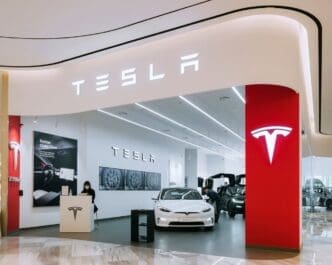Tesla has paused accepting new orders for its Model S and Model X vehicles on its Chinese website, as observed by Reuters on Friday. This decision follows the ongoing trade tensions between China and the United States, the world’s two largest economies. Both models are manufactured in the United States and then imported into China. Additionally, new orders for these models are unavailable on Tesla’s WeChat mini program account in China. The company has yet to provide a comment on the situation.
This action emerges amidst a backdrop of intensifying trade disputes between China and the U.S. On Friday, China escalated its tariffs on U.S. imports to 125% following President Donald Trump’s choice to raise tariffs on Chinese goods to 145%. The increased tariffs significantly elevate the retail prices for Chinese consumers, making these U.S.-made vehicles more costly compared to locally produced electric vehicles.
Despite the heightened tariffs, Tesla, headquartered in Austin, Texas, is relatively less impacted among automakers due to its predominant U.S. manufacturing for domestic sales. Tesla produces its Model 3 and Model Y vehicles at its Shanghai plant, catering to the local market and exporting to regions like Europe, which constitutes the majority of its sales.
According to Li Yanwei, an analyst with the China Auto Dealers Association, China imported 1,553 Model X cars and 311 Model S cars in 2024. Collectively, these models contributed to less than 0.5% of Tesla’s total deliveries, which exceeded 657,000 vehicles last year. Additionally, Tesla’s sales in China face growing competition from domestic manufacturers, including BYD.
Globally, deliveries of Tesla’s premium sedan and SUV models, along with the Cybertruck, experienced a 25% decline in the first quarter. This downturn is attributed largely to a lack of updates to these vehicles and a public backlash against CEO Elon Musk’s political stances.
The Ripple Effect
- Local consumers in China may find it increasingly challenging to purchase imported U.S.-made electric vehicles due to rising costs stemming from heightened tariffs.
- Chinese automakers like BYD could further strengthen their market position as consumers pivot towards more affordable domestic models, driving local industry growth.
- The escalating trade tensions between the U.S. and China could prompt shifts in global automotive markets, potentially influencing international pricing and availability.
- Increased tariffs may lead to broader economic implications, affecting not only the automotive sector but also other industries reliant on international trade.
- The ongoing trade war highlights the importance of understanding geopolitical factors in consumer purchasing decisions, impacting both individual and corporate strategies.
- For U.S. automakers, the necessity to strategize around international manufacturing and sales could become increasingly prominent, influencing future business models and global operations.








